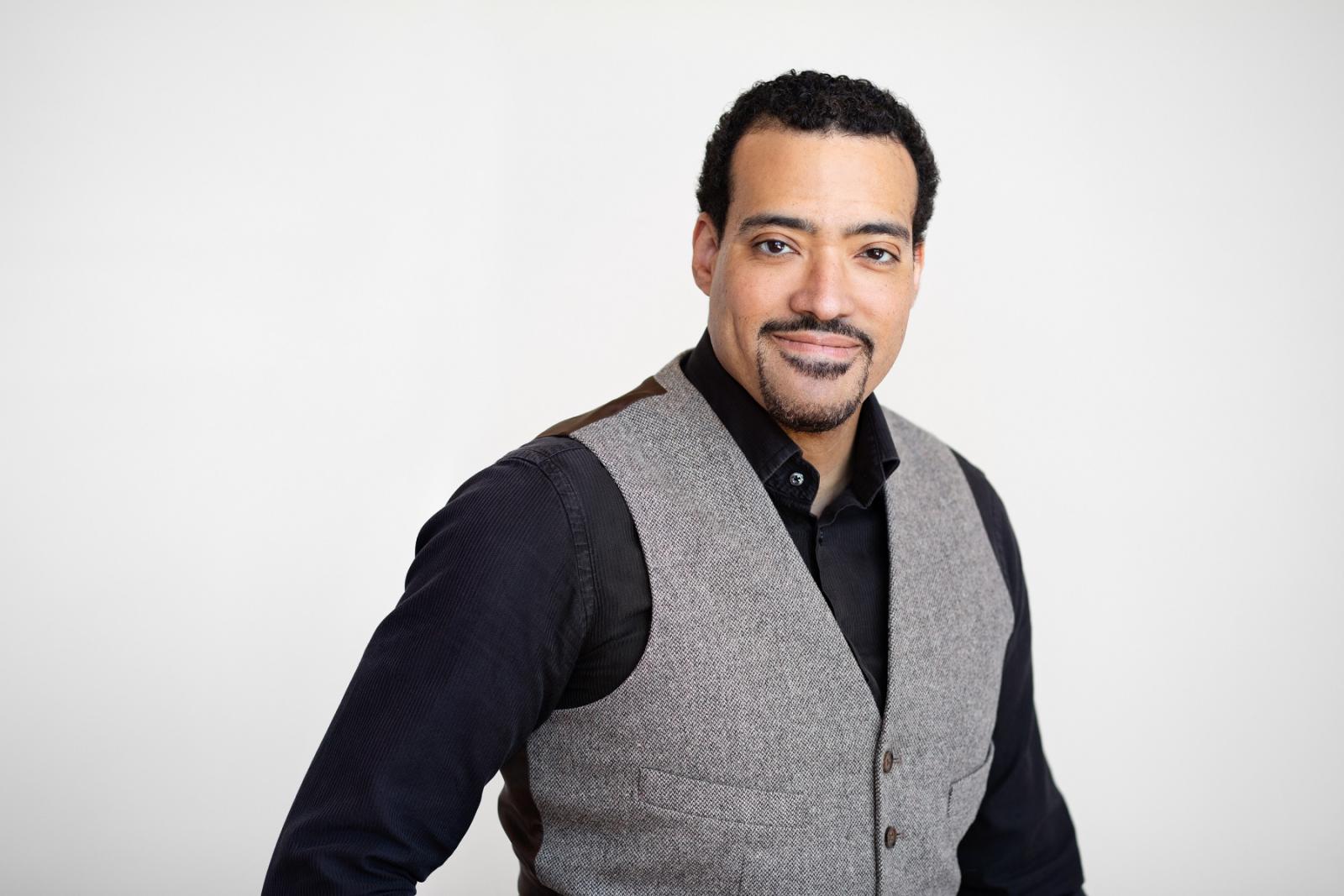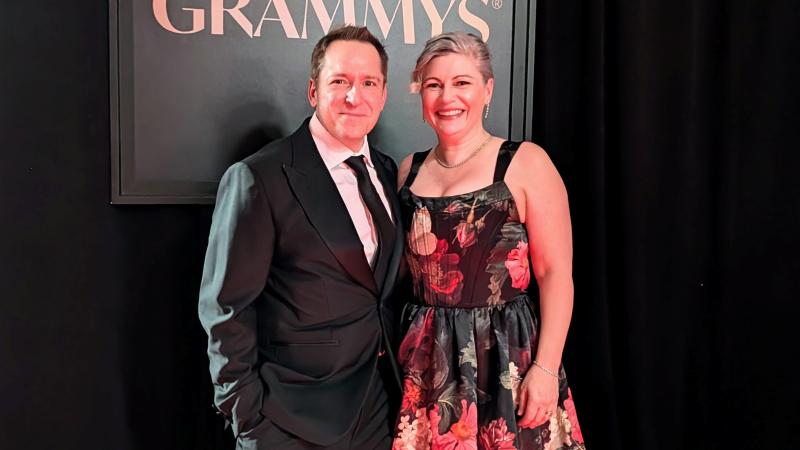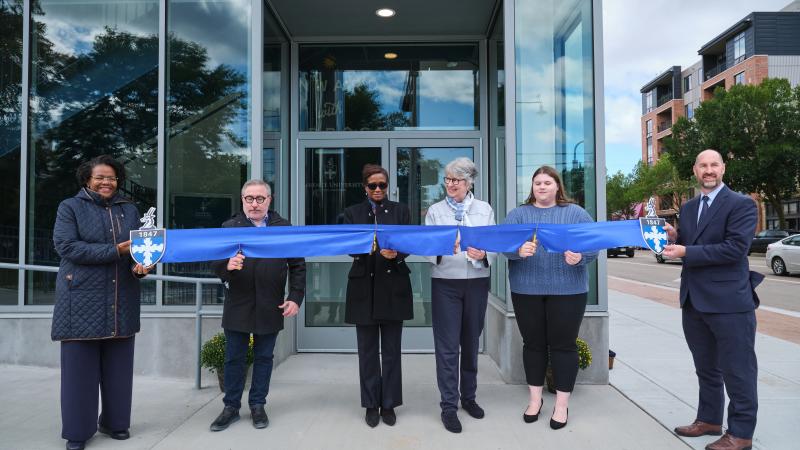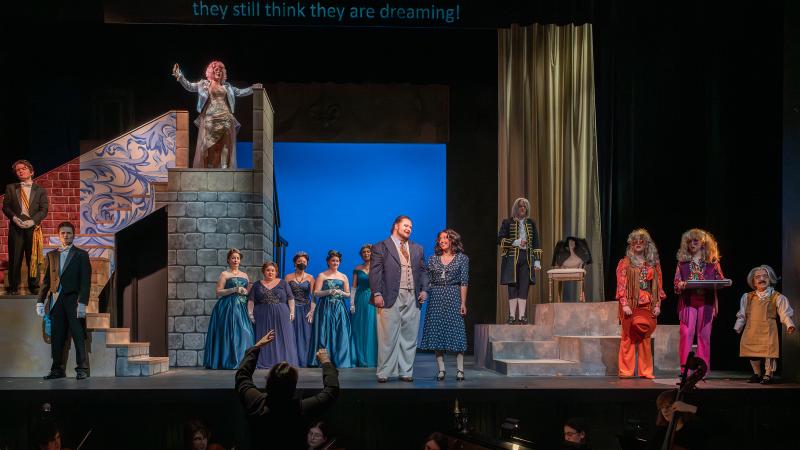This story originally appeared in the spring/summer 2025 edition of Lawrence magazine.
Dr. Christopher Jenkins is the new dean of Lawrence University’s Conservatory of Music. He began his duties July 1, overseeing all aspects of Lawrence’s music degree programs and contributing significantly to the university’s academic mission. Reporting directly to the provost, Lawrence’s chief academic officer, Jenkins will play a pivotal role in shaping the future of the institution.
The accomplished violist brings a wealth of experience from his time at Oberlin College and Conservatory, where he served as associate dean for academic support since 2014. At Oberlin, he was instrumental in fostering the academic and artistic growth of conservatory students while leading efforts to expand the music curriculum. He also actively pursued his own academic and artistic development, earning a Doctor of Musical Arts in viola performance from the Cleveland Institute of Music and a Ph.D. in musicology from Case Western Reserve University.
Magazine: See the digital edition of the spring/summer 2025 Lawrence magazine
Jenkins succeeds Brian Pertl, whose leadership for 17 years has shaped the Conservatory and laid a strong foundation for its next era of growth and innovation. Pertl has begun a position as director at the University of Denver’s Lamont School of Music.
Jenkins talked about his excitement in joining Lawrence:
Q: What about Lawrence and the Conservatory of Music drew your attention?
Jenkins: Most of my work has focused on issues of equity and diversity in music performance and education, and as I did more research, it became clear that Lawrence Conservatory is a leader in this space. This is evident in a range of initiatives, from faculty’s openness to curricular change, especially in music theory and musicology, to the B.M.A. degree, which supports a genuine synthesis of diverse musical styles. It’s important for alumni to understand Lawrence has been engaging in conversations about diverse modes of excellence for years while other schools are just gingerly dipping their toes in those waters today. Lawrence is just light years ahead of other places in its orientation toward diverse and creative music making. I wouldn’t be nearly as interested in working at a conservatory that didn’t share these values.
Beyond that, from the faculty I got a clear sense of authenticity, mutual respect, and genuine engagement with difficult questions, including what it means to be a successful young musician in the 21st century.
Q: What can students expect from your leadership?
Jenkins: I come from a student affairs background. So, I would love for students to understand that I want to know what you are thinking about, what your concerns are, and what you need, and that you should never hesitate to reach out to me. What types of courses are you looking for? How can the student experience be improved? What issues are out there that no one knows about except students? It is astounding how much happens on campus and no one has any idea except for students.
Integrate intellectual and musical virtuosity in a supportive community that will empower you to find your musical path.
Most of all, I would emphasize to students that my entry point into academia was in student affairs and the student experience will always be my central concern. And students should know that I’m still active as a performer, so I get where they’re coming from and where they’re going.
Q: As you lead a conservatory, what constitutes success?
Jenkins: The purpose of the academic project, to me, is to enhance the musical, academic, and social development of young people so that the next generation is empowered to do better than this generation.
During the town hall that was part of my on-campus interview, I mentioned that there are so many direct stakeholders in higher education. There are faculty members who make sacrifices to dedicate themselves to a single institution; there are alumni whose relationship with the institution is lifelong just by its very nature; and there are staff members who are indispensable but whose hard work is often unacknowledged.
All those perspectives deserve respect. I would emphasize that the primary constituency of any school must be current and future students. When we prioritize the educational and social environment for students, every other constituency benefits. Faculty must receive career development support so they can do their best possible work and set the highest example for their students. The workplace culture must be rooted in respect and belonging so staff can maintain their institutional commitment and help students thrive. When students thrive, alumni have the gratification of seeing younger graduates elevate their alma mater. All of this flows organically out of placing students at the center of the academic mission.
This doesn’t mean giving students whatever they want, because sometimes they can find it challenging to accurately perceive what’s in their best interest. But I would define success in educational leadership as creating an environment that gives students the best possible chance for their own personal and professional success by keeping them at the center of the mission.
Q: What’s your message to the Conservatory’s faculty, staff, and students as you join them on this journey?
Jenkins: I just want to be sure it’s clear that I understand this work to be a joint venture, and that whatever we accomplish will be accomplished together. A few things are certain: I won’t be perfect, because no one is; our best-laid plans will have to change at times because no plan survives first contact with reality; and there is no limit to what we can accomplish in an environment of mutual trust, respect, creativity, and inspiration.



